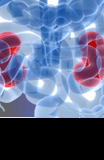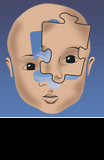If you are visiting the United Kingdom (UK) and require treatment in our hospitals, you may have to pay for your treatment.
Anyone of any nationality who is not ordinarily resident in the UK at the time of treatment is regarded as an 'overseas visitor'. This means that they may be charged for the treatment they receive within Oxford University Hospitals NHS Foundation Trust.
This includes, but is not limited to, the John Radcliffe Hospital (Oxford), the Churchill Hospital (Oxford), the Nuffield Orthopaedic Centre (Oxford) and the Horton General Hospital (Banbury).
NHS hospitals have a legal obligation to establish whether a person is an overseas visitor, and whether charges apply or they have an exemption. Where there is no exemption, we must charge the person liable and recover the costs from them.
An Overseas Visitor is someone who is not ordinarily resident in the UK and does not permanently live in the UK. If you are visiting the UK or have been living outside the UK for more than six months, you may have to pay for NHS hospital treatment whilst you are here.
This is regardless of whether you are a British citizen or have lived or worked here in the past.
NHS services and treatments which are free for everyone
Some NHS services are free to everyone.
These include:
- family-planning services (excluding maternity treatment i.e. assisted conception and termination of pregnancy)
- diagnosis and treatment of certain infectious diseases
- treatment at the Emergency Department (A&E) only.
- treatment required for a physical or mental condition caused by torture, female genital mutilation (FGM), domestic violence or sexual violence - this does not apply if you have come to England to seek this treatment.
Treatment at the Emergency Department (A&E) is free only up to the point of admission as an inpatient or if/when given an outpatient appointment referral. It does not, therefore, include emergency treatment given after admission to the hospital as an inpatient or outpatient. Treatment at this point is chargeable to non-exempt visitors.
Exemptions
Hospital treatment is free to people who are 'ordinarily resident' in the UK.
To be considered ordinarily resident and entitled to free hospital treatment, you must be living in the UK on a lawful and properly settled basis for the time being. You must have leave to remain status or status under the EU Settlement Scheme.
Also those who fall under the following categories are considered not chargeable.
- British nationals working overseas for UK employers, Government agencies and charity organisations funded by the UK government
- NATO personnel, their spouse/civil partner, and children under 18 provided they are lawfully present in the UK
- overseas students in the UK on courses over six months' duration and who have paid the Health Surcharge
- people, and their dependants, who make an application for asylum, temporary protection or humanitarian protection
- children who are looked after by a Local Authority
- victims of modern slavery (which includes victims of trafficking or slavery, servitude and forced or compulsory labour) with a positive conclusive grounds decision
- people who make applications for leave to remain under the Home Office Destitution Domestic Violence Concession (would only be entitled to free assisted conception services on the same basis as a resident, if the need to the services was as a result of domestic violence and the person had not travelled to the UK to receive treatment)
Evidence of entitlement
NHS hospitals have a duty to identify and charge overseas patients for hospital treatment they receive. Hospitals are required to check documentary evidence of entitlement to prove that you are ordinarily resident in the UK.
If you cannot provide the documents you may have to pay a deposit equal to the estimated cost of your treatment before you receive an appointment or treatment.
Maternity services, or treatment which the doctor or nurse thinks is immediately necessary or urgent, will not be withheld, but charges will apply and you will receive an invoice after your treatment.
To help us check if you are entitled to free healthcare, you will need to bring two separate documents to your appointment - one to prove your identity, and one to prove your address.
Documents required
Proof of identity
The following documents can be used as proof of identity.
- Current signed passport
- Residence permit issued by UK Border Agency
- Valid UK photo-card driving licence
- EU or Swiss national identity photo-card
- Valid armed forces or police photographic identity card
- Photographic disabled blue badge
- Citizen card
Proof of address
The following documents can be used as proof of address (they must contain your current address and be dated within the last six months).
- Recent original utility bill such as gas, electric, water, landline (excluding mobile phone)
- Council Tax bill for the current year
- Bank, building society or credit union statement or passbook
- Recent original mortgage statement from a recognised lender
- Current council or housing association rent book or tenancy agreement
- Notification letter from the Department for Work and Pensions confirming your right to benefits or a state pension
European Economic Area (EEA) / Swiss patients
EEA refers to countries in the European Economic Area, which comprises the Member States of the European Union, Norway, Iceland and Liechtenstein.
EFTA refers to countries in the European Free Trade Association which comprise Norway, Iceland, Liechtenstein and Switzerland.
Qualifying EU visitor means a visitor insured for healthcare by an EU member state and eligible to access healthcare in the UK at the expense of that member state under the terms of a reciprocal arrangement that has been reached to this effect between that country and the UK.
Qualifying EFTA visitor means a visitor insured for healthcare by an EFTA country and eligible to access healthcare in the UK at the expense of that country under the terms of the Withdrawal Agreement.
However, if you're visiting from Iceland, Liechtenstein or Switzerland you may be charged for NHS healthcare. You should check with the relevant health authority where you live before travelling to the UK.
If you access our services because the need arose during your visit to the UK, you will need to provide a copy of your European Health Insurance Card (EHIC) or a Provisional Replacement Card (PRC).
If you are coming to the UK for elective treatment then you will need to provide a copy of S1/S2 or E112.
If you do not have these documents with you, and you cannot demonstrate that you have an exemption to charges, you will be required to pay for your treatment and recover the costs from your 'healthcare abroad team' when you return home.
Students from EEA/Swiss countries are also required to provide copies of their EHIC / PRC.
For more information please visit:
- European Health Insurance Card (EHIC)
- Visitors from EU countries, Norway, Iceland, Liechtenstein or Switzerland - NHS website
Reciprocal healthcare agreements (non-EEA)
Several countries and territories outside the EEA also have reciprocal healthcare agreements with the UK which cover their nationals for health costs.
Patients who can provide evidence to show they are lawfully resident in one of those countries (and a national of that country if applicable) will be exempt from charges providing the need for treatment arose during their visit to the UK.
Reciprocal and bilateral agreements do not apply where patients have elective (planned) treatment, or treatment which can be carried out in their country of origin.
The UK has reciprocal healthcare agreements with some non-European Economic Area (EEA) countries.
Overseas visitors who can present evidence that they are nationals, citizens or lawful residents of one of these countries should be treated as exempt from charges in respect of treatment that the relevant agreement entitles them to.
Proof that the person is a national/citizen/resident (as appropriate) of the country and that they are resident in that country will be required, such as:
- passport
- residence permit
- identity card
- social security card
- utility bill etc.
For referrals for elective treatment we require confirmation from the relevant country / Department for Work and Pensions that the referral has been agreed.
Within the reciprocal agreements there are a number of variations in the level of free treatment afforded to visitors travelling to the UK. Generally, only immediate medical treatment is to be provided free of charge, to allow the overseas visitor to return home for other needs.
The agreements do not usually apply when the person has travelled to the UK for the purpose of obtaining healthcare, although this is not always the case.
For the most up-to-date level of free treatment by country and other conditions that apply please visit:
Charging overseas visitors in England: guidance for providers of NHS services - gov.uk
Infectious diseases exempt from NHS charges
The treatment and diagnosis of certain infectious diseases is available to all patients free of charge, including overseas visitors.
- Acute encephalitis
- Acute poliomyelitis
- Anthrax
- Botulism
- Brucellosis
- Cholera
- Diphtheria
- Enteric fever (typhoid and paratyphoid fever)
- Food poisoning
- Haemolytic uraemic syndrome (HUS)
- Human immunodeficiency virus (HIV)
- Infectious bloody diarrhoea
- Invasive group A - streptococcal disease and scarlet fever
- Invasive meningococcal disease (meningococcal meningitis, meningococcal septicaemia and other forms of invasive disease)
- Legionnaires' Disease
- Leprosy
- Leptospirosis
- Malaria
- Measles
- Mumps
- Pandemic influenza (defined as the 'Pandemic Phase'), or influenza that might become pandemic (defined as the 'Alert Phase') in the World Health Organization's Pandemic Influenza Risk Management Interim Guidance
- Plague
- Rabies
- Rubella
- Severe acute respiratory syndrome (SARS)
- Smallpox
- Tetanus
- Tuberculosis
- Typhus
- Viral haemorrhagic fever (which includes Ebola)
- Viral hepatitis
- Whooping cough
- Wuhan novel coronavirus (2019-nCoV)
- Yellow fever
- Middle Eastern Respiratory Syndrome (MERS)
The exemption also applies to the diagnosis and treatment of sexually transmitted infections.
Travel insurance
If you have insurance cover, the cost of treatment will be charged to the individual who remains responsible for payment.
Unless the hospital has a letter of guarantee from your insurers authorising your treatment, you will need to settle your account and reclaim this from your insurers.
Cost of treatment
We will give you an estimated cost for your treatment, in advance if possible. Costs are based on the Standard National HRG Tariffs applied throughout the UK.
Failure to pay
If you fail to pay for NHS treatment for which charges are appropriate, your future application to enter or remain in the UK may be denied.
Necessary (non-medical) personal information may be passed via the Department of Health and Social Care to the Home Office for this purpose.
It is the responsibility of the Overseas Visitor to pay for their medical treatment in the UK.
If you were not informed that a charge would apply, under the Charging Regulations you are still liable for the charge.
Contact us
If you have any queries about overseas visitors, please contact us.
All hospital sites
Email: overseasvisitors@ouh.nhs.uk
Tel: (+44) 1865 743309
Further information
For more information please see:




























































